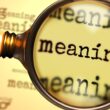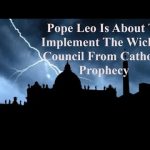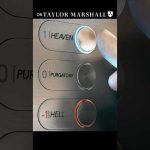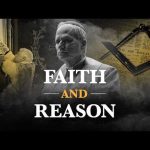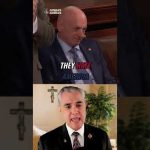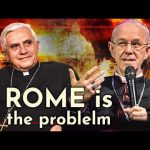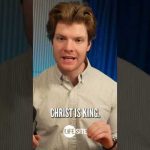As Christmas shopping season is upon us, I would like to draw readers attention to ten Catholic titles generally falling under the categories of adventure literature, spirituality, and philosophy. For literarily inclined gifters, I hope that this can be the start of a fruitful booking of Christmas gifts!
Over this past year, I have been glad of the chance to read and review a number of books on topics as disparate as sailing, gender ideology, and Old English poetry. Thinking up a Christmas list turned into a review of the reviews I’ve written and an opportunity to revisit a couple of the volumes main themes. So you will pardon me if most of the titles are items I’ve already reviewed more fully elsewhere: hopefully a title that catches your eye can be better explored through the longer reviews I link to.
Adventure
While its a bit of spirituality and theology mixed in, Brian Christopher Moore’s biblical fantasy about the flood is certainly one of the strangest and strongest books I list here. Beneath the Silent Heavens is “almost more poetry than prose.” A tour-de force of successful “modern” writing, Moore incorporates stream of consciousness passages with lyric prose and mysterious dialog. I have reviewed the work more fully here. I would say that this is perhaps the most breathtaking piece of fiction I’ve read in many years. Certainly a book a Protestant or even non-Christian would enjoy if they have any love for a theologically deep fantasy like those of Tolkien and Lewis.
On another adventure note is Hilaire Belloc’s The Cruise of the Nona, which my dad and I recently brought out in a new edition from Os Justi Press. This is an adventure saturated with Catholicism without ever being a “religious book.” As such, it might make a great gift for a non-Catholic friend or family member with an interest in literature, sea-faring, or history in general. Anyone interested in World War I and the British politics surrounding it is sure to enjoy its unconventional format.
My last “adventure” recommendation is quite different from the previous few: a heartrending novel surrounding the changes of Vatican II and the resulting alienation of laity during the ‘60s, Judith’s Marriage is nearly unique in the genre of “traditionalist” literature. Following a young English couple and their experience of the Church, the work was written by a priest as “his answer to the assumption that ‘the Catholic laity were a set of ignorant fools’ and therefore required a reformed and relevant liturgy,” as I wrote this spring. Not a book for teenagers or those sensitive to the criticism of the New Mass.
The Old English epic Beowulf has been translated innumerable times. What makes the latest translation—Peter Ramey’s The Word-Hoard Beowulf—unique is the translator’s attention to the theological and poetic subtlety of the original. While many translations “flatten” words like “God,” “glory,” and “fate,” Ramey preserves significant original words, explaining with extensive notes how the poem ties notions of pagan fate, human free-will, and Christian Providence together in a daring way. No more about the “strength” of Beowulf: it’s time for thrym—glory, prowess, bravery, honor, accomplishment, power, strength and praise all rolled into one heroic example of meekly conquering manhood.
Spirituality
If you are looking for pithy spiritual reading, New Nazareth’s In Us is a recent publication in the style of Ronald Knox. Published by the monks of Silverstream Priory’s Cenacle Press, this slim volume is “satisfying without being heavy, full of light without being trite,” as I wrote in a full length review. Perhaps an unintimidating gift for a parish priest who could use inspiration for short yet meaty sermons.
Similarly, I can wholeheartedly recommend the newly republished collection of Hubert van Zeller from Silverstream. We Live with Our Eyes Open, We Die Standing Up, We Work While the Light Lasts, and Letters to a Soul are the four I would most highly recommend. What I wrote of We Work While the Light Lasts could be applied to any of these volumes: van Zeller “presents the universal call to holiness by bluntly addressing common tendencies in man. His writing has a British 1950s charm, yet cuts to what is essential in a way that feels modern and relevant.” For young and old alike, van Zeller’s sage advice is easy and inspiring to read.
A picture book—almost a comic book—of great insight, The Boy, the Mole, the Fox and the Horse is “a refreshing echo of scripture and natural law principles from another source than the Gospels or Plato.” Simultaneously a “children’s book” and an adult piece, this would make a great gift for anyone more inclined to the cozy. I’ve examined some of its themes here. Given its Christian aura which never actually references religion, it could be an excellent gift to a non-believer.
Philiosophy/Theology
At the Dawn of Humanity is a recently published exploration of evolutionary genetics by a Catholic anthropologist. Introductory without being simplistic, the author examines the theory of evolution in a positive light while stressing the limitations of what we can in fact say about the non-physical aspects of man: self-consciousness, language, a sense of morality, and the like cannot be explained via genes since they are immaterial things. Although they may require a brain with certain physiological characteristics, human reason and consciousness cannot necessarily be created by physical changes.
We’ve all heard lots of lamentation and hypothesis and solution and the rest surrounding the “culture wars” and gender ideology. Consider James Kalb’s The Decomposition of Man. “Traditional social identities,” Kalb says, “and the arrangements they support give a place in social life to considerations – human nature, love and loyalty, the psychological security of children, the Good, Beautiful and True – that cannot be translated into commercial or bureaucratic terms or made a matter of individual consumer or lifestyle choice. That is enough to justify them.” A review I published on the Catholic Herald delves deeper in to the book.
To conclude my list, I turn to one of the most insightful books of its sort published in recent years: Joseph Shaw’s The Liturgy, the Family, and the Crisis of Modernity was such an inspiring read that I had to review it twice (here and here), as well as interview the author with further thoughts on the work. This is a must read for any serious Trad, as well as a helpful, non-polemical discussion to put in the hands of anyone seeking to understand more traditional views of Liturgy, Vatican II, feminism, and patriarchy. Released at the beginning of this year, I hope this book becomes a classic.
Here, then, are ten worthwhile books from excellent publishers. Pursuing the catalogs of Angelico, Os Justi, and Cenacle Press will lead you to many other excellent tomes. Perhaps spending your pennies on friends and family will lead to a renewed spirit of adventure or theological nuance. Of the making of books there is no end; but of and to recommending them, let us start it here.


